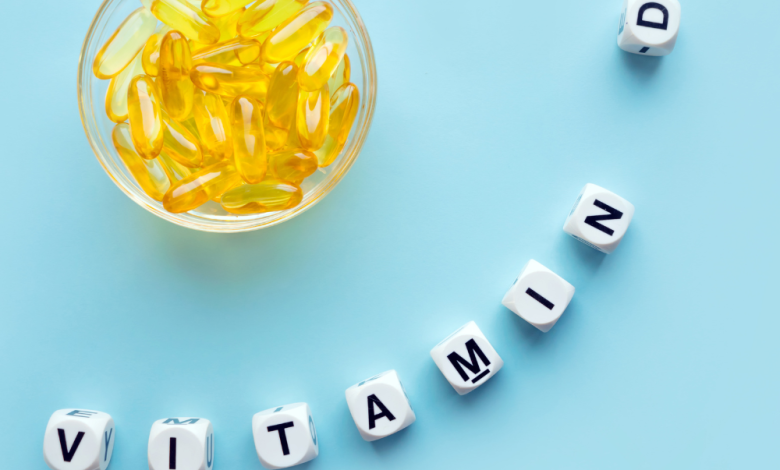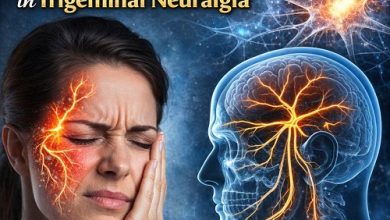The Surprising Link Between Vitamin D and COVID-19 Protection

Since the emergence of SARS‑CoV‑2, researchers have debated whether vitamin D—traditionally celebrated for its role in bone health and calcium metabolism—also plays a protective role against COVID‑19. Does vitamin D status influence infection risk, disease severity, or immune response? Evidence so far offers intriguing signals—but also contradiction. Let’s unpack the surprising—and evolving—link between vitamin D and COVID‑19.
1. Why Focus on Vitamin D?
1.1 Vitamin D & Immune Modulation
Vitamin D is more hormone than vitamin, regulating over 3% of the human genome. It modulates both innate and adaptive immunity: promoting antimicrobial peptides, improving macrophage and dendritic cell function, reducing inflammatory cytokine cascades, and potentially dampening cytokine storm in severe COVID‑19.
1.2 Shared Risk Factors
Groups at risk of severe COVID‑19—such as older adults, people of Black or Asian ethnicity, and individuals with obesity—also often have low vitamin D levels. This overlap fueled investigations into whether correcting deficiency might translate into better outcomes.
2. Observational Evidence: Associations, Not Answers
2.1 Vitamin D Deficiency & COVID‑19 Risk
Multiple observational and meta‑analytic studies have shown associations between low vitamin D status and increased odds of SARS‑CoV‑2 infection, hospitalization, ICU admission, and mortality. For example:
- One meta-analysis reported odds ratios for deficiency vs sufficient levels around 1.8–2.6 for infection, and 2.1–2.8 for ICU admission or death.
- In a UK Biobank study (over 151,000 people), vitamin D deficiency (<25 nmol/L) was weakly associated with infection risk but was clearly linked to higher hospitalization risk (aOR ~1.36).
- In particular, among Black and Asian participants, deficiency raised infection odds in some analyses.
These studies cannot prove causation: low vitamin materializes as a marker of poor health or other exposures—and causality remains uncertain.
3. Mechanistic Insights: Why Vitamin D Might Help
Laboratory and causal-inference research lend biological plausibility:
- Vitamin D regulates gene expression in immune cells, suppressing excessive Th1 responses and reducing lung inflammation—a key driver of severe COVID‑19.
- Mendelian randomization and causal-inference meta-analyses suggest that higher vitamin D levels may affect inflammatory biomarkers linked to COVID‑19 risk and severity, though effects on outcomes remain modest.
These insights support the concept, but clinical validation is essential.
4. Clinical Trials & Meta‑Analyses: Mixed Signals
4.1 High-Dose Supplementation in Hospitalized Patients
Randomized controlled trials (RCTs) of a single high dose (e.g. 200,000 IU vitamin D3) in moderate to severe COVID‑19 have not significantly reduced hospital length of stay, mortality, ICU transfer, or mechanical ventilation rates.
4.2 Broader Meta‑Analyses & Umbrella Reviews
- An umbrella meta-analysis summarizing 13 meta‑analyses, 57 observational studies, and 23 RCTs concluded that deficiency is associated with worse outcomes and that supplementation may reduce mortality—but effects on ICU admission or ventilation were inconsistent and effect sizes small.
- One systematic review highlighted reduced ICU admission risk (~36% of non‑supplemented rate) among hospitalized patients receiving vitamin D or calcifediol, but found no mortality benefit; data quality and heterogeneity are limitations.
4.3 Large Meta‑analyses on Respiratory Infections
Not limited to COVID‑19, a major review in The Lancet Diabetes & Endocrinology of nearly 60,000 participants across 48 trials found no statistically significant protective effect of vitamin D supplementation on acute respiratory infections broadly—even among those deficient. Notably, that study did not isolate COVID‑19 outcomes.
Thus, while certain supplementation regimens show signals of benefit (especially in deficient individuals), the totality of RCT data remains inconclusive.
5. Latest Wave: COVID‑19 Hospitalization & Vitamin D (2025 Evidence)
A recent UK Biobank analysis published in July 2025 reported by Australian scientists found more than 150,000 adults: people with vitamin D deficiency (<25 nmol/L) or insufficiency (25–49 nmol/L) were notably more likely to be hospitalized with COVID‑19—even though infection rates were similar to those with normal levels. This affirms that vitamin D status may modulate disease severity rather than risk of infection per se.
6. Vitamin D & Vaccine Response: An Unexpected Angle
Early evidence indicates that vitamin D status might influence the immune response to COVID‑19 vaccines:
- A study of healthcare workers receiving Pfizer‑BioNTech found that people deficient in vitamin D had lower antibody levels nine months post‑vaccination compared to those with sufficient levels.
- Additionally, observational data suggests that vitamin D deficient individuals lose antibodies faster after infection—suggesting potential relevance for long‑term immunity and susceptibility over time.
7. Why the Mixed Results? Understanding the Challenges
7.1 Variability in Study Design
Studies differ in dosage (daily vs single dose vs weekly), type of vitamin D (cholecalciferol vs calcifediol), baseline vitamin D status, patient populations, timing of supplementation, and follow-up period. This heterogeneity complicates pooling results and drawing consistent conclusions.
7.2 Correlation, Not Causation
Observational findings may reflect confounding factors: vitamin D deficiency is associated with obesity, older age, chronic illness, reduced mobility, and limited sun exposure. These same factors also increase severity of COVID‑19, making it difficult to isolate vitamin D’s independent effect.
7.3 Statistical Power
Many RCTs were small and underpowered, especially for hard endpoints like mortality. Null findings may reflect insufficient sample size, not absence of effect.
7.4 Outcomes Differences
Vitamin D may not reduce infection risk noticeably, but could help modulate disease progression. Such subtler benefit is more difficult to detect in trials focused on acute outcomes like hospital stay.
8. Unpacking the Surprising Link
Despite many uncertainties, several insights emerge:
8.1 Deficiency Matters
Consistent across studies is that vitamin D deficiency (below ~25 nmol/L) is a marker of poorer COVID‑19 prognosis. People with normal or sufficient levels fare better—at least in observational analyses.
8.2 Supplementation Is Not a Cure
Randomized trials of high-dose high-doses have, so far, failed to show strong benefit in hospitalized settings. No trial has demonstrated vitamin D as preventive of infection or universally effective as treatment.
8.3 Immune Mechanisms Provide Biology
Vitamin D’s role in controlling inflammatory responses and regulating immunity provides a strong mechanistic basis for potential benefit in COVID‑19 severity—even though clinical proof remains pending.
8.4 Emerging Real‑World Signals
The most recent UK Biobank study suggests that low vitamin D correlates with higher hospitalization—but not infection—risk, aligning with the hypothesis that status matters more for disease progression than susceptibility.
8.5 Vaccine Response May Be Affected
Lower vitamin D may reduce long-term antibody persistence post-vaccination, which could influence decisions on supplementation timing—for people with proven deficiency.
9. What Do Health Organizations Say?
Major guidelines emphasize caution:
- The NIH states there is insufficient evidence to recommend vitamin D supplementation for prevention or treatment of COVID‑19.
- The UK’s NICE continues to advise against offering vitamin D solely for COVID‑19 prevention or treatment outside clinical trials—but endorses standard supplementation for bone health or deficiency risk.
These reflect a consensus that vitamin D may support immune health, but is not a substitute for evidence-based public health measures such as vaccination, masking, and treatment protocols.
10. Practical Recommendations
Based on current knowledge:
10.1 Focus on Maintaining Sufficiency—not Mega-Dosing
Daily doses of 600–800 IU are often sufficient; higher doses should only be considered under medical guidance, especially for correction of deficiency. Avoid excessive supplementation, which can be harmful.
10.2 Test if High Risk or Unsure
If you’re older, have limited sun exposure, darker skin, malabsorption issues, or chronic health conditions, consider having your serum 25(OH)D level measured—and supplement accordingly.
10.3 Use Vitamin D as Support, Not Protection
Supplementation can complement—but not replace—coVaccine uptake, masking, ventilation, hygiene, social distancing, and antiviral therapies.
10.4 Timing Matters
Better to maintain consistent sufficient levels prior to infection than rely on massive doses once COVID‑19 is already severe.
10.5 Monitor New Evidence
Further large-scale RCTs and longer-term follow-up on vaccination and long COVID outcomes may clarify optimal use.
11. Why Is It So Surprising?
- Expectation vs Evidence Gap: Intuitive appeal (“vitamin D boosts immunity”) raised high hopes early in the pandemic—but rigorous studies have yet to confirm strong effects.
- Precision Required: Benefits seem restricted to correcting deficiency—not elevating already-normal levels.
- Subtle Effect: Evidence suggests vitamin D may influence hospitalization or severity more than infection risk—less visible impact in prevention-focused trials.
12. Toward Future Research
Emerging directions include:
- Large RCTs targeting deficient populations: Focusing on people with low baseline levels may reveal clearer effects.
- Standardized dosing regimens: Comparing daily vs weekly vs single high doses; exploring calcifediol (activated form) vs cholecalciferol.
- Vaccine-response studies: Measuring whether supplementation improves long-term antibody persistence or T-cell responses.
- Long COVID management: Studying whether vitamin D influences recovery trajectories and persistent inflammation.
Conclusion
The link between vitamin D and COVID‑19 protection is intriguing—but nuanced. Current evidence strongly ties deficiency to worse outcomes, particularly hospitalization and disease severity. However, supplementation has not consistently proven to prevent infection or improve mortality outcomes in randomized trials. Vitamin D’s immunomodulatory properties offer a plausible mechanism—and new studies, including the recent UK Biobank research, reinforce the possibility that maintaining sufficiency may help mitigate severity.
At present, public health authorities do not advocate vitamin D as a COVID‑19 cure or prevention strategy, but they do recommend maintaining adequate levels—especially in individuals at risk of deficiency. Vitamin D should be viewed as one piece of the broader health puzzle—not a standalone shield.
Summary Table
| Aspect | What We Know |
| Deficiency & Risk | Strong association with hospitalization & severity |
| Infection Risk | Weak or absent association |
| High-Dose Trials | No clear benefit on hospital stay or mortality |
| Meta‑Analyses | Mixed; signals of reduced ICU admission only in some |
| Mechanistic Plausibility | Yes—immunomodulation, anti-inflammatory effects |
| Vaccine Response | Suggests lower antibody durability when deficient |
| Guidelines | No recommendation for COVID‑19 use; standard support for bone/immune health |
| Best Practice | Test & correct deficiency; maintain sufficiency |
Final Takeaway
If you’re deficient, correcting vitamin D levels may offer modest benefit in reducing the risk of severe COVID‑19—but it’s not a replacement for vaccination, masks, or medical treatments. For most of us, maintaining normal vitamin D levels through safe sun exposure, diet, and moderate supplementation is a useful part of healthy living—but not a cure-all.




